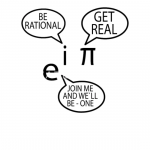JohanL
Champion
- Joined
- 23 Jan 2021
- Messages
- 7,463
Eller, om man är David Hume, att känslorna är det primära (för vad är annars poängen med något?). Förnuftet är hur vi uppnår det som vi känslomässigt vill ha.
- I tråden förknippas rationalitet ofta med att vara behärskad, ej känslostyrd, etc., och irrationalitet med motsatsen. I den mån filosofer överhuvudtaget pratar om känslor i relation till rationalitet, så tenderar de för det mesta att nå slutsatsen att känslor är rationella.
"Reason is, and ought only to be the slave of the passions."
Stanford Encyclopedia of Philosophy:
Hume is particularly concerned with analyzing our practical reasoning, our reasoning about how to act. Passions are the engine for all our deeds: without passions we would lack all motivation, all impulse or drive to act, or even to reason (practically or theoretically). This gives at least one sense in which “reason is, and ought only to be the slave of the passions” (T II.3.3 415). Hume also holds that the passions are not themselves directly subject to rational evaluation. In fact, it seems something of a category mistake to think that they could be either rational or irrational. Passions are impressions – strong and lively perceptions with a certain “feel” and a direction, or impulse. Reasoning, however, is a matter of connecting various ideas in order to come to a belief; it may apply to, or even form, the circumstances under which passions arise. But reason can generate no impulse by itself.
On these grounds, many have attributed to Hume a belief-desire model of practical reasoning, in which our ends are given by passions (desires). On this view, reason is in the business of producing beliefs, but our beliefs are relevant only to the means by which we seek to obtain those ends: they do not determine the ends themselves. So, reason has only an instrumental use.

